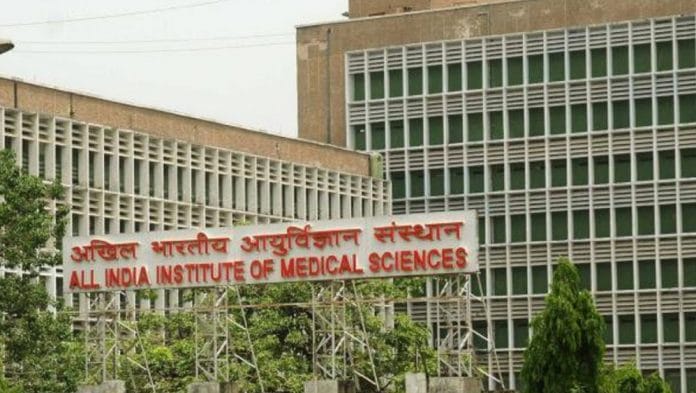New Delhi: In a “historic moment” in judiciary, a Delhi court Wednesday recorded the statement of the Unnao rape survivor at an “extra-ordinary” temporary court set up at the AIIMS hospital in the case of alleged sexual assault on her by expelled BJP MLA Kuldeep Singh Sengar in 2017.
The woman deposed before District Judge Dharmesh Sharma during ‘in-camera’ proceedings held at the seminar hall of the the Jai Prakash Narayan Apex Trauma Centre, where she identified the two accused in the case, the victim’s lawyer said.
She is admitted to the hospital following an accident on July 28 this year.
Her deposition was made partly on the wheelchair and partly on the stretcher, the lawyer said.
The proceeding from 11 AM to 5 PM continued without any glitches with periodic breaks as per the medical requirements and attention needed for the victim, he said.
The temporary court was set up at the hospital with the Delhi High Court’s permission after the doctors attending the woman said it was “not advisable” to bring her to the court premises.
The rape survivor would will be cross examined on Thursday at AIIMS. ‘In-camera’ proceedings are not open to the public and the press.
The woman was allegedly kidnapped and raped by Sengar in conspiracy with co-accused Shashi Singh in 2017, when she was a minor.
Sengar and co-accused were also brought to the hospital on Wednesday amidst high security from Tihar jail.
Security was beefed up at the hospital with the deployment of about 20 Delhi police officials along with CRPF officials from the pathway to the lobby and the entrance of the seminar hall. CCTVs inside the special court were switched off during the proceedings.
Patients and their relatives were not allowed to enter from the first floor entrance. They had to enter the hospital from another entrance on the ground floor.
After the judge arrived at 10 am, even the hospital staff was not allowed to enter the pathway.
The woman was brought to the court in a wheelchair and was examined by her attending doctors first and the proceedings started after the doctors gave a statement to the judge about her medical condition, said Sunil Pratap Singh, the counsel for the accused.
The accused were also present in the hall with a curtain placed between them and the rape survivor as per the court’s directions, he said.
The proceedings continued till about 5 pm with occasional breaks for the woman to take her medicines. A nursing officer was also present with the woman inside the court who was in touch with her attending doctors.
Counsel for the woman and her family, advocate Dharmendra Mishra, told PTI that the arrangements at the temporary court were “extraordinary” and it was one of the “historic moments” in judicial history.
He said the elder sister of the rape survivor was allowed to accompany here throughout the proceedings.
Sunil Pratap Singh said that despite the woman’s health conditions, the deposition went on smoothly.
The rape survivor was air-lifted from a Lucknow hospital to Delhi after the accident on the Supreme Court orders.
The court had earlier issued a slew of directions for holding ‘in-camera’ proceedings at AIIMS.
It had said that there would be no audio or video recording of the deposition and asked the Medical Superintendent (MS) to ensure that the CCTV cameras installed inside the seminar hall remained switched off during the proceedings there.
It also asked the authorities to ensure that the woman does not come face to face with the accused.
It had instructed the management of the Trauma Centre to place a stand with curtains to ensure that ensure that the woman does not come face to face in contact with the accused as well as to facilitate the accused to be seated in the court, hear and observe the proceedings.
The court had directed the CBI to ensure adequate security arrangement at the lobby of the seminar hall.
It also instructed the chairman of the computer committee at Tis Hazari District Court to make necessary arrangements for the computers and systems required for the deposition inside the seminar hall.
Also read: Unnao rape survivor’s case shows rural India needs a MeToo






